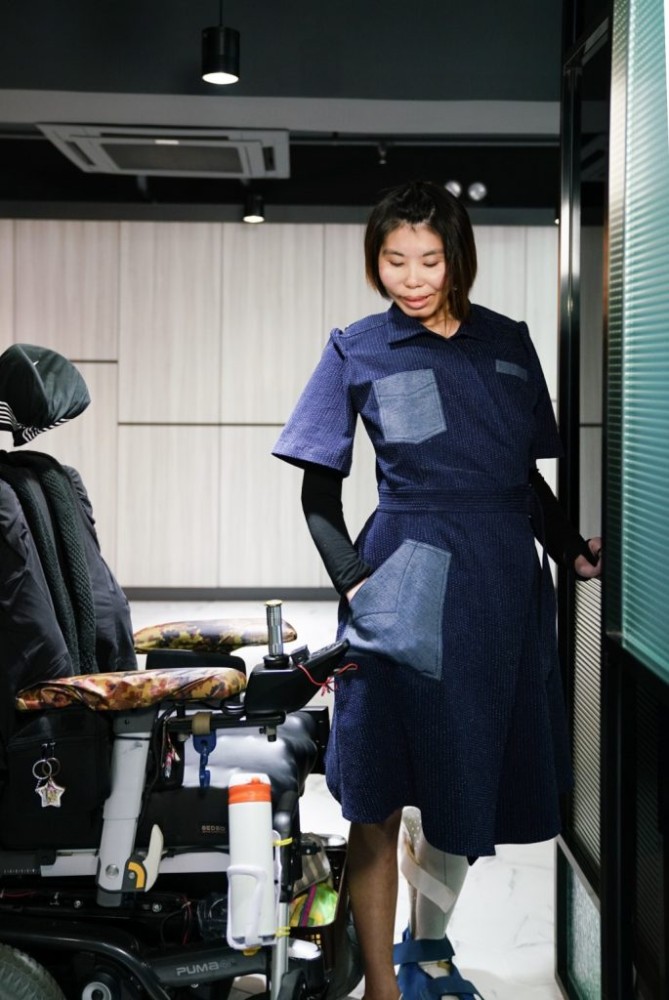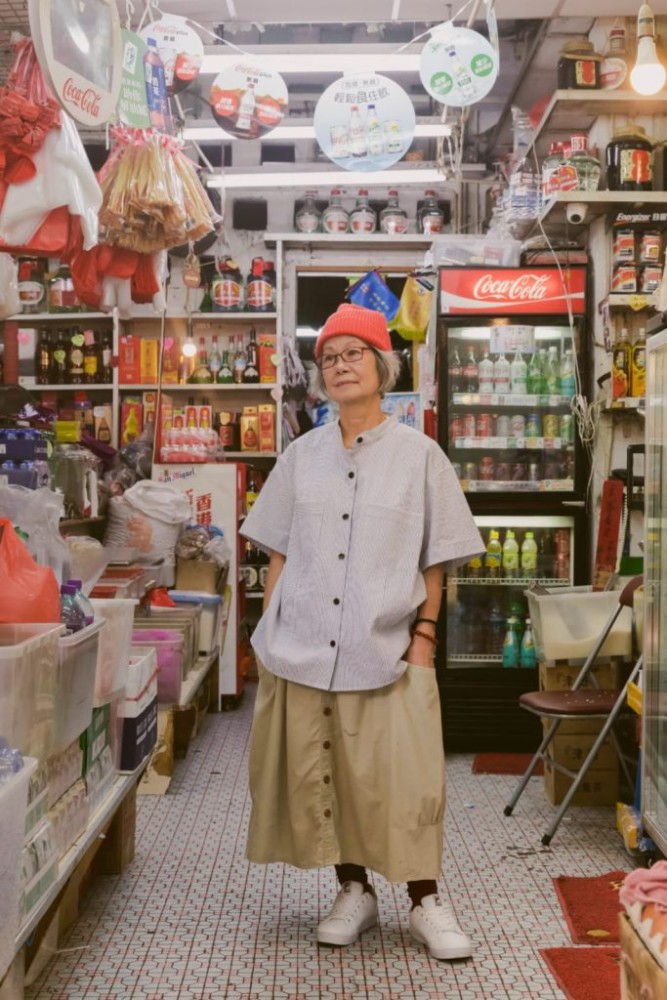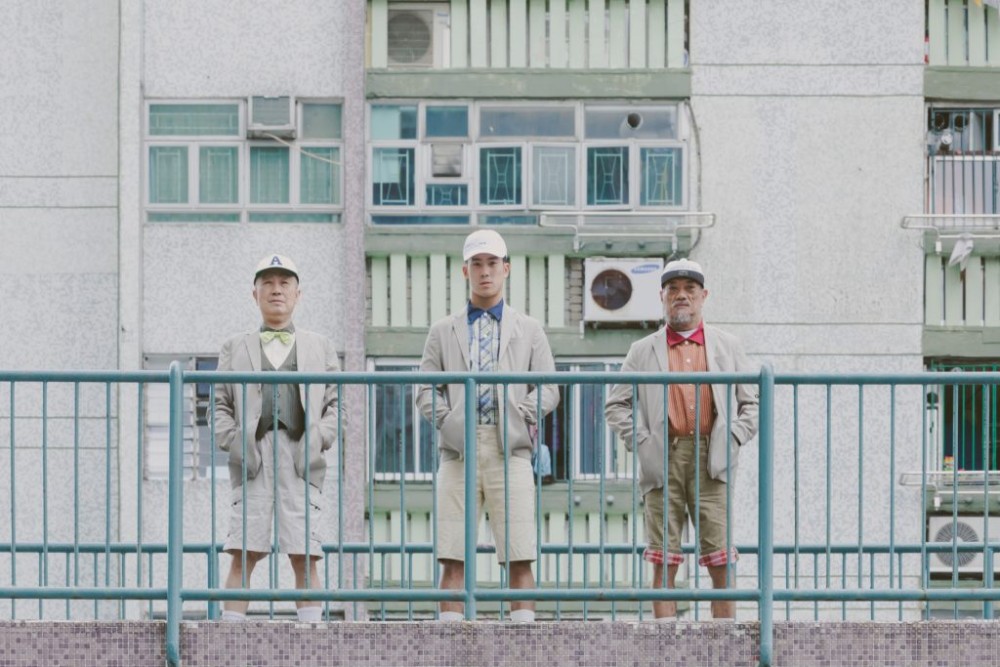An in-depth look at Hong Kong’s adaptive clothing market with RHYS
Jul 20, 2021
ICYMI, July is Disability Pride Month and roughly 9% of Hong Kong residents have a disability – according to the Census and Statistics Department’s 2013 survey. That means that almost 1 in 10 people in the city have some sort of physical or mental disability, whether it be restricted movement or an intellectual disability.
And, according to researchers, that number is only going to rise as the elderly population increases in the coming years. With the population of people with disabilities growing, the need for accessible services grows with them.

More than ever, Hong Kong needs local clothing options for people with disabilities. We talked with RHYS, one of the city’s few adaptive brands about the importance of adaptive clothing and the challenges of creating accessible garments.
What is adaptive clothing?
Adaptive clothing is clothing specially designed for elderly people and people with disabilities. The clothing can be anything from a shirt with easy magnetic release buttons to asymmetric shoes made for a prosthetic foot. The important thing is that the garment minimises functional limitations for the wearer, allowing them to dress with more comfort and autonomy.
Since every person’s disability comes with unique needs, larger scale one-size-fits-all production doesn’t always work. So, smaller local adaptive clothing companies are essential to create garments that fit each individual wearer. In Hong Kong, the Polytechnic University and Home Care Apparel have been creating custom adaptive clothing for years, but now, there’s a new company on the market. RHYS strives to bring their own eye for fashion to the adaptive clothing scene.
An eye-opening experience
Ophelia Keung spent over 30 years working in the garment industry before founding RHYS with her daughter, Kadri Keung, in 2017. Ophelia saw a clothing niche for people with disabilities after taking care of her mother in a nursing home. Kadri recounts the experience as eye opening. “During that time, we, and especially my mom, saw a lot of things in the daily life of the elderly living in the nursing home,” she says. “And she saw that there were so many inconveniences, costing the carer so much strain and causing the users a lot of painful experiences.”
“So, my mother thought, with the garment making knowledge she had accumulated after so many years, that there were things that we could do to the garments to make things easier and make things prettier.”
Kadri, now the creative director for the company, puts an emphasis on the beauty of their garments. When you think of clothing for nursing homes, ugly blue scrubs made of polyester may come to mind. And you wouldn’t be too far off. Most mass produced adaptive clothing in Hong Kong is made with low quality fabrics and limited functionality, according to Kadri.
Without another choice, people slowly resign themselves to wear clothes that look ugly and never feel right. “There’s not much choice for them in the market, on adaptive wear or just clothing that fits their needs,” she says. “So, from all the years of disappointment, they choose to just buy whatever they can, whatever they fit in, but they don’t have the right things. With my clothing, we hope that we can give them the hope and eagerness to find things that they love again.”
The link between style and mental health
Stylish clothing can have a huge impact on mental health, giving elderly and people with disabilities the confidence and respect they deserve. Fashionable options also work to close the gap between accommodation and acceptance. Pajamas or scrubs may fit in a nursing home, but not in an office.
Many people have trouble finding professional attire for the workplace, which makes working as a whole harder and more expensive for people with disabilities. Custom shops, like RHYS, offer clothing for a range of occasions and take special orders.

RHYS starts each commission with a consultation between the client and the staff. The user or carer comes in person to explain the items they need, as well as the styles, fabrics, and colours that would best suit the user. From there, RHYS creates a prototype of the garment.
“We will make a mock up and that mock up is for the carer to take back home and try it with the user to see if the garment fits,” Kadri explains. “If the special design features work for them, they will give us comments. Then we will work on the final product, which is with the right fabric, with the right color, right everything. It’s all gonna be the final colors for that. It might take us a month to finish it, but that will be the right product for them.”
Staying local
Local shops are essential in this process. Physical feedback and return are built into the system for, as opposed to ordering through the phone or online. Though running a local garment workshop in Hong Kong isn’t exactly cheap. Kadri explains that the cost is three times more than outsourcing the designs.
But RHYS is committed to helping their community. “Starting from the beginning, my mom already said that she wanted this workshop to be more meaningful, instead of mass producing stuff which is made in China or even South East Asia,” Kadri says.
Almost all of RHYS’s employees are women from low income families, new immigrants, and people with physical or mental disabilities. The shop trains each new employee for a few months to a year until they are capable enough to work the machines from home. When COVID happened, RHYS had already implemented an at-home plan for most of their employees so they could still earn money while staying safe at home.
Now, RHYS is shifting their focus to seminars and teaching workshops to raise awareness of the demand for adaptive clothing. Going into nursing homes and other organizations, RHYS teaches people how to make adaptive clothing for their own users.
Awards and accolades
RHYS’s work for forgotten minorities has not gone unnoticed. In 2019, the company won the award for Most Influential Design from DFA Asia and just last year the Hong Kong Federation of Social Enterprises certified the business as a social enterprise.

From the workshop to employment practices to seminars, the company works to help the member of their community that often go overlooked. Starting by building a space for people with disabilities. “We hope that from what we have been doing more people in society acknowledge the needs of the elderly and disabled people,” Kadri explains.
“That they really have a need to choose things that are good looking and which make them happy. Because there are so many people who ignore those facts. They say as long as [elderly people] are alive and not getting into hospitals then everything is just not important. They are going to die very soon and they don’t need beautiful clothes, they don’t need things that are specially made for them. But we think this kind of mindset should be changed.
“And we are trying to do this. We are trying to achieve this goal bit by bit, and it takes time.”
RHYS, Workshop 1, 7/F, Goodluck Industrial Centre, 808 Lai Chi Kok Road, Kowloon, Hong Kong, +852 2701 7218



























